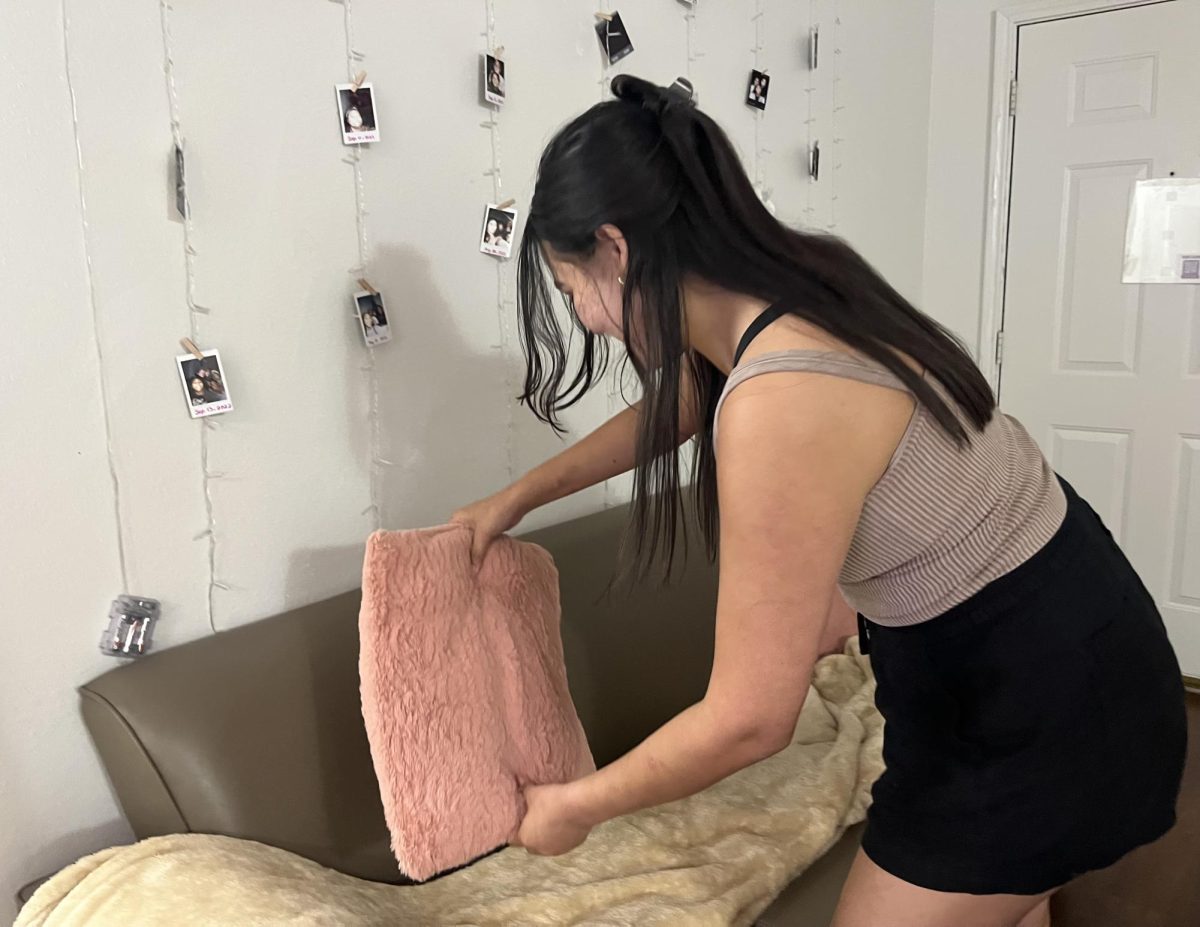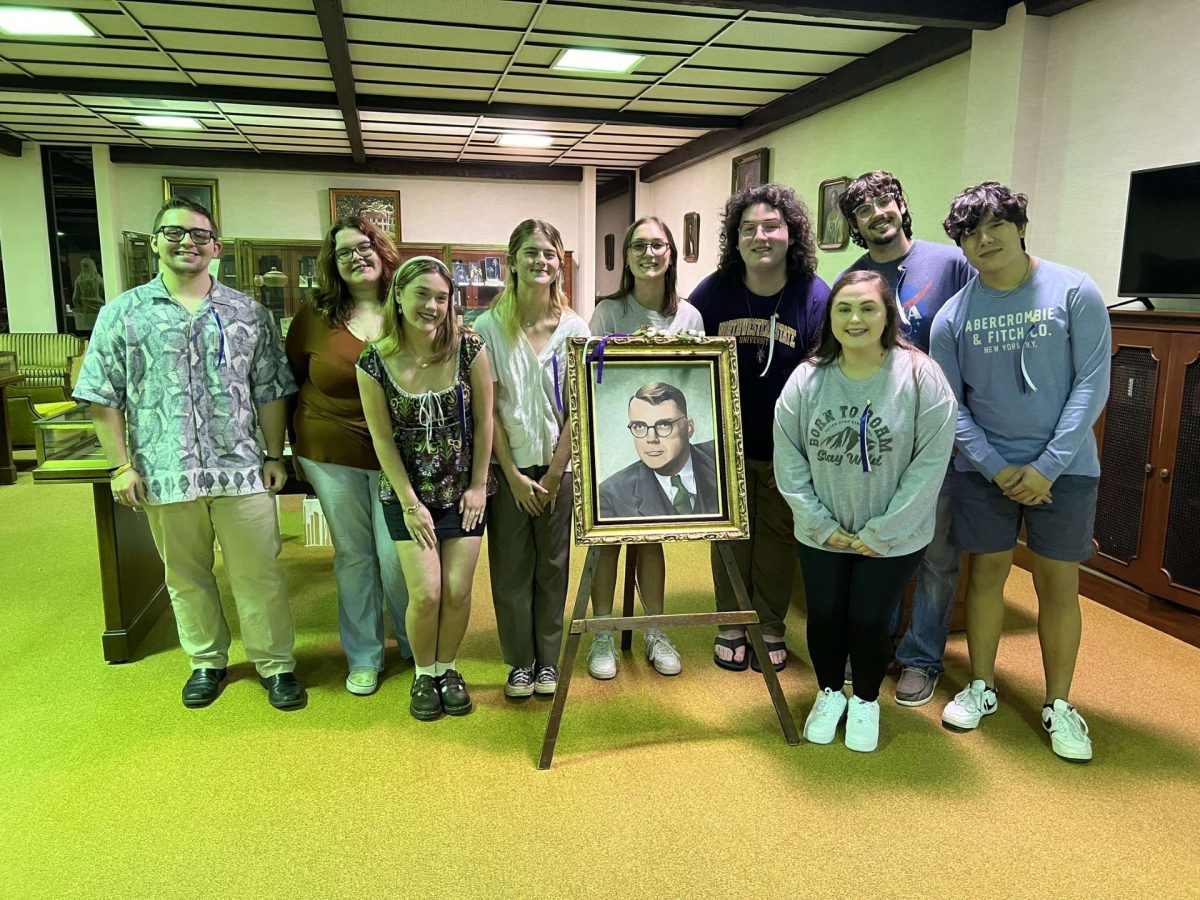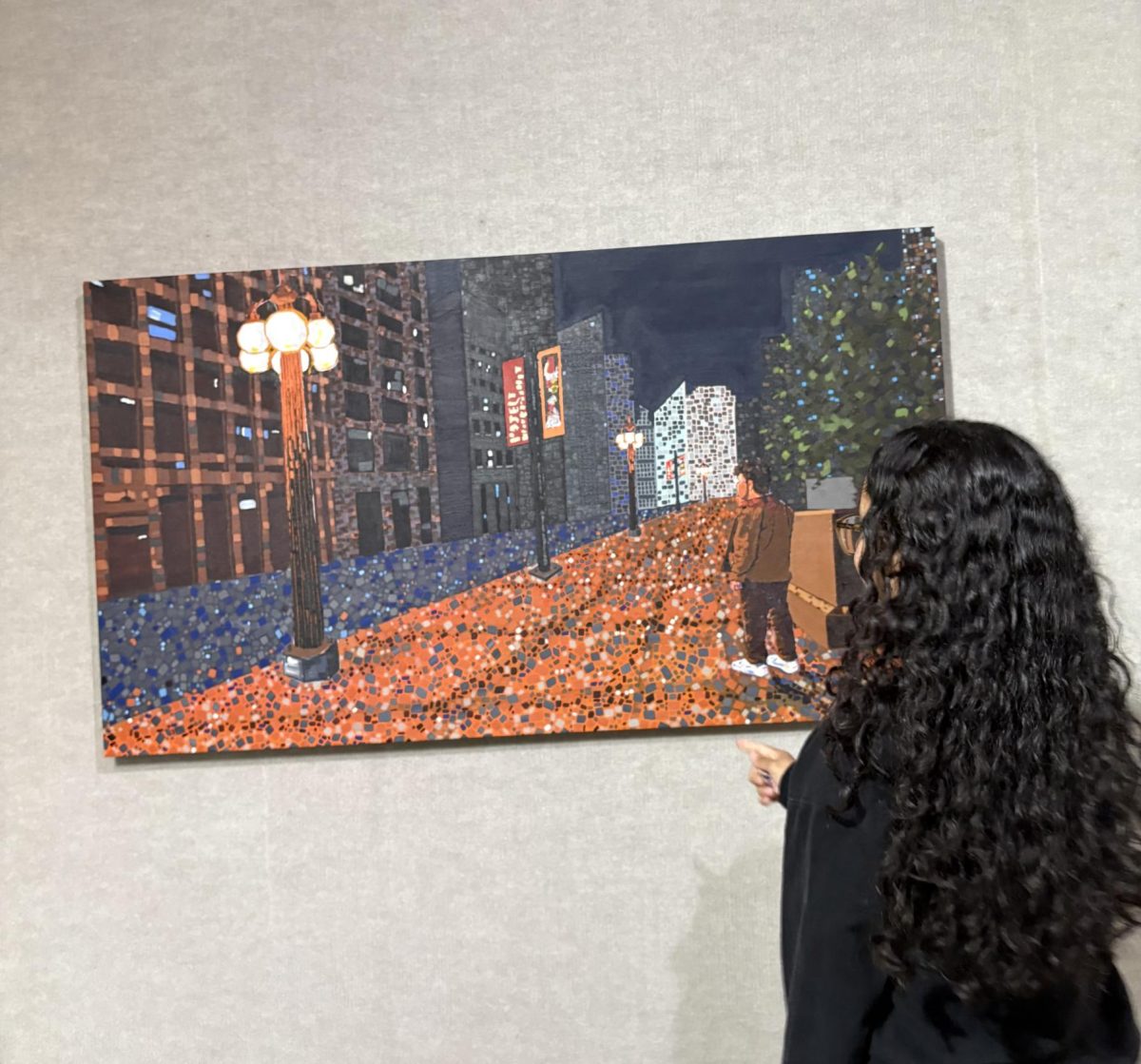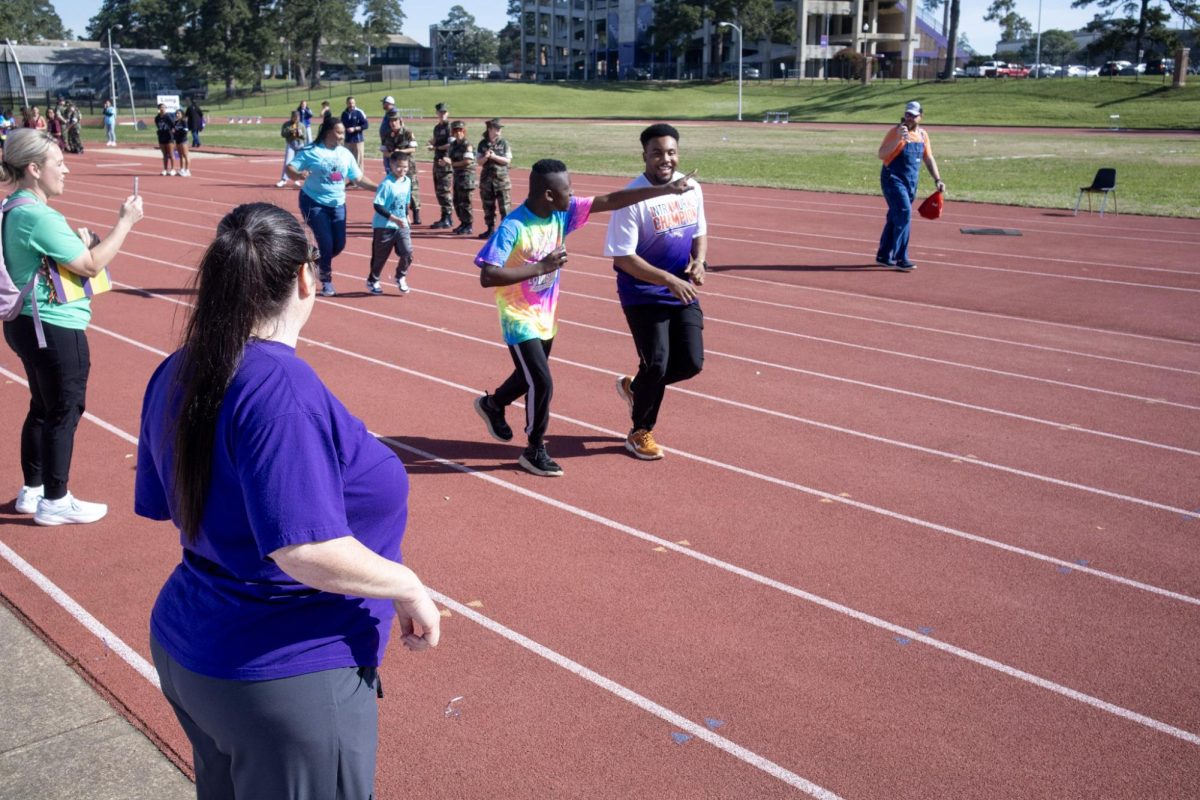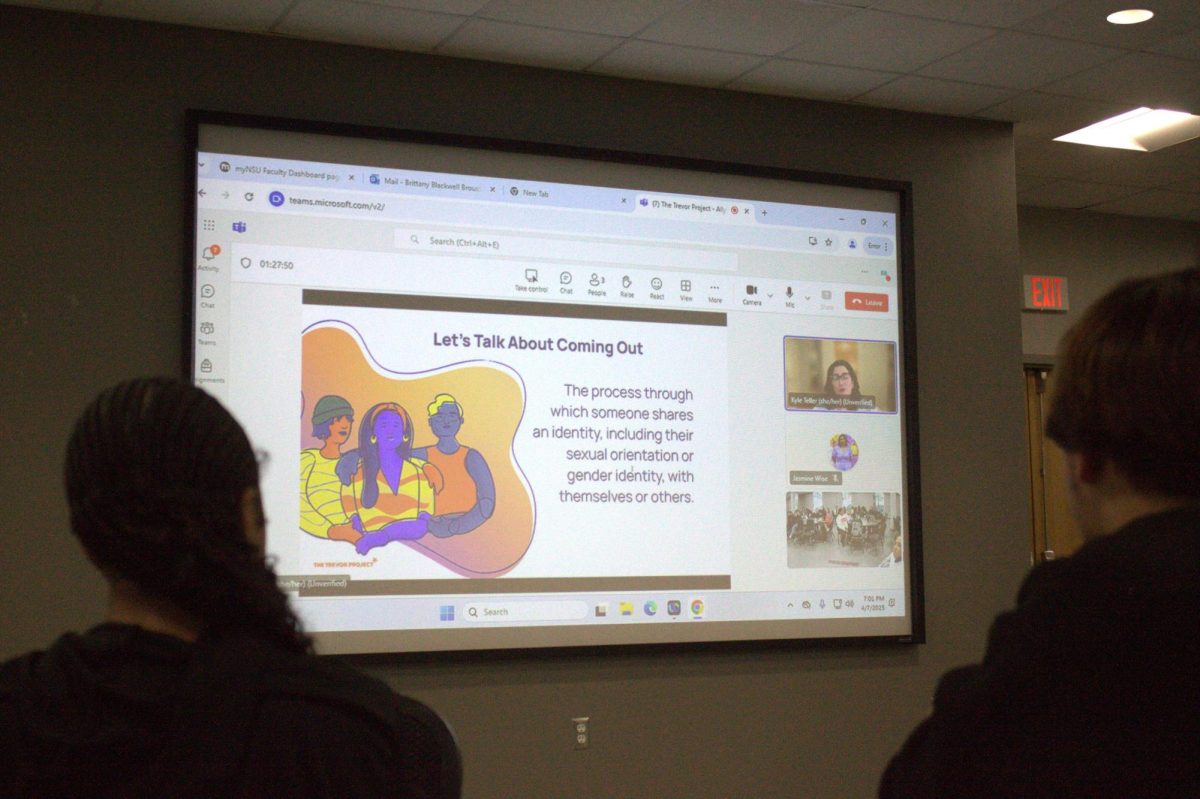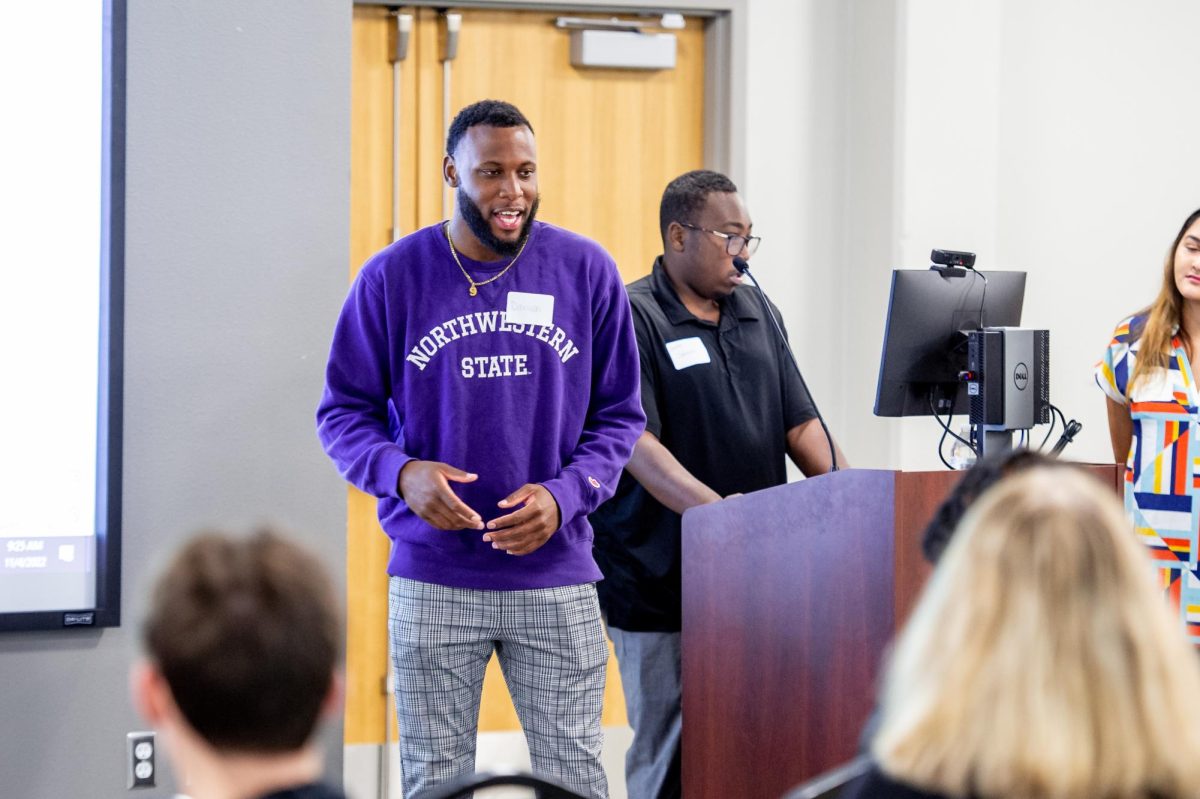Brianna Corley
Arts and Living Editor
Northwestern State University released a statement which announced all in-person classes would be online until further notice on March 14.
The abrupt change of this structure during a time of crisis has been felt by all members of the NSU community.
While the disruption of normalcy came with a new challenge for all NSU students and faculty to meet, the shift has been more difficult for programs that require extensive hands-on classes.
Kara McWilliams, senior nursing major, recalls hearing the news of in person classes being cancelled with panic.
“I was scared that the most important level of school was now going to be self-guided at home,” McWilliams said.
With the content of her classes changed from a hands-on clinical experience to a virtual learning world, many challenges have been presented to McWilliams.
“I find it hard to make myself sit and do work online for hours rather than get up and physically go to the clinic,” McWiliams said. “It takes a lot of dedication and determination to make sure the goals presented to us are met on time.”
McWilliams’ classes now use Cisco WebEx for conference calls for lectures as well as exams. Assignments for clinicals are posted to Moodle for students to complete.
McWilliams states that not much has changed in terms of workload and while her clinicals were easy for her, the online transition has resulted in a lot of different types of work.
“We have papers to write, v-sims to do, case studies, and all kind of things that are very time-consuming rather than hard,” McWilliams said. “All the while we must study for exams, keep up with lectures and other classes we are taking.”
McWilliams thinks that these classes are the best NSU can do given the current situation and she is grateful she will be able to graduate on time. However, she feels there is a massive difference between face-to-face structure and online classes, especially considering she has children at home and a husband who’s working.
“I have shed a few tears in these past few weeks,” McWilliams said. “Trying to keep grades up is a constant struggle. It’s all up to us to remain focused.”
McWilliams’ advice for other students having to face this difficult transition is to stay focused and remember the obstacles they have overcome.
“If things were easy, they would not be worth obtaining and the ultimate goal of graduating, and passing is always just one mountain away,” McWilliams said. “Don’t count the days you have left or look ahead. Just take everything face value, one day at a time and grab the bull by the horns.”
Tara Baxter, Natchitoches campus coordinator and assistant professor of nursing, stated that as a faculty member she had been pre-planning before the formal announcement and was confident in the faculty and students’ ability to adapt quickly.
“We were said that we would not get to see our students in person,” Baxter said. “That perhaps is the hardest thing.”
Baxter regarded that the content of classes has not changed and that quality instruction is still being provided through Cisco WebEx and stream, and faculty are working diligently to maintain structure.
Classes post lectures that utilize voice over on PowerPoint and weekly meetings occur to discuss content, clarify concepts and host a question and answer period.
“As nurses we often must think outside the box to achieve positive outcomes with patients and students,” Baxter said.
Baxter stated that workloads are being kept primarily the same. Since most courses are taught from various campuses by multiple people, faculty are able to support one another, and students have more than one point of contact for assistance and help.
“The biggest challenge for me is not being able to see my students in person both in classroom and clinical,” Baxter said.
Baxter thinks students should be flexible and trust the process and that faculty should be patient with students. Baxter hopes that students will be patient with faculty in return as everyone navigates through their new learning environment.
“I know it is personally harder to stay motivated at home, and in some ways, there are more distractions,” Baxter said. “Block your time off as you would for class. Get up, get dressed and put your scrubs on!”
Shari Wilson, a junior theatre and English major, recalls learning about the transition in her 9 a.m. theatre dialects class.
Wilson remembers she and her classmates realizing that morning would be the last day they gathered for class. After the announcement was made, she and her peers spent the remainder of the class talking quietly.
“I knew it had to be done,” Wilson said. “It was just that it had happened.”
Wilson noted that knowing that she and her classmates would not return to see each other and all the spring musicals, plays, dance concerts and other performances were cancelled has been one of the most challenging aspects of the transition.
“It has surely impacted our way of theatre, the way that it is live, authentic and different every time,” Wilson said. “I think that the content that will be created from this will be different but not a complete erasure of theatre.”
Wilson’s classes now operate through Cisco WebEx and YouTube, which allow for both class discussions and for her tap class to still meet and dance.
On YouTube, she and her peers post monologues, performances or scenes from plays to be graded by professors.
“It is a big change but not that much,” Wilson said. “We are just doing the theatre thing from home.”
Wilson thinks the most challenging part of the transition, however, has been socially distancing within itself.
“I want to authentically perform in front of my teachers and peers, and they give me good genuine feedback so that I can better myself,” Wilson said.
Wilson suggests doing hands-on projects that your professors would be teaching to help with the transition.
“Create freely for yourself and grow in the craft that you love,” Wilson said. “Take care of yourself. What is happening right now is a lot to process.”
Dr. Grace Edgar, assistant professor of musical theatre, also said that after she had found out about cancellation, she thought of the cancellation of the senior dance concert and “Newsies”.
“As a teacher of voice acting, I have always thought face-to-face work in real time was essential,” Edgar said. “Now I know that there are many creative ways to interact through various online platforms.”
Edgar notes that the fundamental objectives remain the same in all of her classes despite the approach having been changed. For her Acting I and Musical Theatre Performance classes, they will be doing solo work rather than rehearsing and performing scenes.
Assignments demand that students be creative and vary from voice lessons via Skype to research papers about students’ dream roles.
“Although the platform and assignments have been altered, the goals of improving acting and singing are still at the center of the work we are doing together while apart,” Edgar said.
While Edgar misses her students and the energy of the School of Creative and Performing Arts, she wants to give students an uplifting message.
“We are all struggling” Edgar said. “We are all learning. Be patient with yourself. You are stronger than you know.”






















